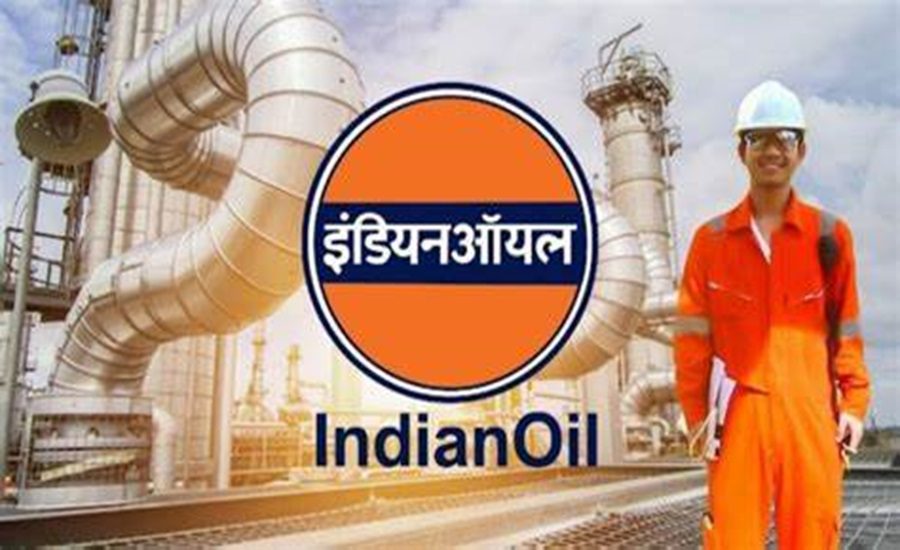New Delhi: Indian Oil Corporation Limited (IOCL) is preparing to place an order for at least 10 Aframax-class crude oil tankers through a Shipping Corporation of India (SCI)-led joint venture, with the vessels to be constructed at an Indian shipyard, sources with direct knowledge of the matter confirmed.
The planned acquisition is aimed at strengthening India’s maritime energy logistics by reducing dependence on foreign-owned ships. Each Aframax vessel is expected to have a deadweight tonnage (DWT) between 80,000 and 120,000, making them suitable for medium-range crude oil transportation.
Government Push for Domestic Vessel Construction
India, which ranks as the third-largest oil importer globally, currently relies heavily on chartered foreign ships for crude oil transport. In recent years, the Indian government has encouraged state-owned oil firms to explore domestic alternatives to increase strategic control and reduce foreign freight payouts.
An initial plan proposed by IOCL and other oil PSUs to establish a new state-backed shipping company failed to take off due to the lack of domestic shipbuilding capabilities and delays in finalizing partnerships. Additionally, cheaper and readily available vessels from countries like China created hesitation around going the indigenous route.
Despite these challenges, the government has remained focused on promoting domestic shipbuilding. A revised proposal led to the formation of a three-way JV model—combining oil marketing companies, a shipping operator (SCI), and a local shipyard (most likely Cochin Shipyard). The JV structure is designed to streamline procurement, construction, and future operations of the vessels under Indian control.
Read also: Indian Oil Increases Russian Crude Imports to 24% in Q1; Targets 98 MTPA Capacity by 2026
Major Announcements Expected from Bhavnagar Launch Event
The formal contract for the 10 crude carriers is expected to be announced during Prime Minister Narendra Modi’s visit to Bhavnagar, Gujarat on September 20, where India will unveil its long-term strategy to become a global shipbuilding hub.
Several key policy and infrastructure initiatives are expected to be announced at the event:
- Revised Ship Building Financial Assistance (SBFA) scheme
- ₹25,000 crore Maritime Development Fund (MDF)
- A ₹20,000 crore plan to establish shipbuilding clusters in Gujarat, Andhra Pradesh, Odisha, and Maharashtra
These policy measures are aimed at reducing capital costs, incentivizing shipbuilding, and expanding manufacturing capacity across strategic coastal regions.
Long-Term Crude Carrier Requirements and Fleet Strategy
Sources indicate that Indian oil companies may need up to 112 new crude carriers by 2040, with the current procurement being the first phase of that plan. The government’s objective is to replace the aging fleet, most of which is currently under charter from foreign firms.
The initial procurement plan includes:
- 79 vessels in the first phase
- 30 medium-range oil tankers
- A roadmap to increase the share of indigenously-built tankers to 7% by 2030, from the current 5%
- A longer-term target of 70% by 2047
SCI will operate the vessels, while Indian shipyards will manufacture them under the direction of the JV. This model ensures both fleet control and domestic manufacturing participation.
Global Players Exploring Collaboration with Indian Shipyards
India’s plan to indigenize crude carrier procurement has drawn interest from international players. Several major global shipbuilders and shipping lines are reportedly exploring partnerships with Indian shipyards, including:
- HD Hyundai Heavy Industries (South Korea)
- Samsung Heavy Industries (South Korea)
- Mitsui OSK Lines (Japan)
- NYK Line (Japan)
Cochin Shipyard is considered the frontrunner for initial orders due to its past experience and expanding capabilities in commercial shipbuilding.
Freight Cost Savings and Economic Impact
Estimates suggest that more than 85% of the $100 billion spent on freight by Indian oil companies in recent years has been paid to foreign shipping companies. By building and owning tankers domestically, the shift could drastically reduce these foreign exchange outflows while creating significant employment and manufacturing momentum within the country.
About SCI
The Shipping Corporation of India Ltd, a Government of India enterprise under the Ministry of Ports, Shipping & Waterways, is the largest Indian shipping company, providing crucial marine transport services including bulk carriers, tankers, offshore services, and container shipping.
About IOCL
Indian Oil Corporation Limited (IOCL) is India’s largest integrated and diversified energy company and a Maharatna Public Sector Undertaking. It operates across the entire hydrocarbon value chain, including refining, pipeline transportation, marketing of petroleum products, petrochemicals, natural gas, and exploration and production. As a flagship national oil company, IOCL is vital to India’s energy security, with the largest market share, a vast network of refineries, pipelines, and fuel stations, and brands like Indane LPG.





























